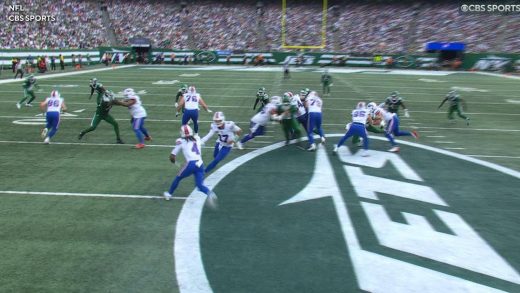It will be little comfort for Ruben Amorim after taking 34 points from his first 33 Premier League games as Manchester United boss, but at least he can say he saw it coming.
The Portuguese coach has made it no secret that his preference was to take the United job in the summer after being identified as Erik ten Hag’s replacement. He didn’t want to be parachuted in mid-season, believing that his appointment in November would create more problems than it would solve. Yet co-owner Sir Jim Ratcliffe and the board had other ideas and told Amorim it was now or never.
It was a move badged as an attempt to get a head-start on United’s route back to the top. Nearly a year on, it’s beginning to look like cutting corners, and it will be the manager — as it always is in these situations — who will eventually pay the price.
– Ogden: The numbers don’t lie when it comes to Amorim
– Every time Amorim has talked about his job
– O’Hanlon: Revisiting, regarding big summer transfers
The pressure ahead of Sunderland’s visit to Old Trafford on Saturday — Amorim’s 50th game in all competitions — is now off the scale. Many United fans have already decided that even a positive result will only delay the inevitable and in many ways, it’s a lose-lose situation for Amorim.
Win, and he’s unlikely to get much credit because United should be winning at home to promoted teams like Sunderland — who are fifth on their return to the top flight, with three wins and two draws in their first six games. Lose or draw, and it will be more fuel for the supporters who have already decided he needs to go.
Amorim was surprisingly calm and collected in his news conference after last weekend’s 3-1 defeat at Brentford, but he’s smart enough to understand that the opportunity to add context to what’s happening under his watch has been and gone.
He could have pointed out that three missed penalties — two from Bruno Fernandes against Fulham and Brentford respectively, and one from Bryan Mbeumo in the Carabao Cup shootout defeat at Grimsby Town — have put a different slant on the start to the season. Or that individual mistakes — whether Luke Shaw against Manchester City, or Harry Maguire against Brentford — are consistently pulling the rug from under his game plan.
Only Amorim didn’t, largely because he’s realised the only debate that matters now is the referendum on his future. Stay or Go? Amorim in, or Amorim out? Nothing else seems to matter. It was noteworthy that as he spoke in the media theatre at the Gtech Community Stadium, he suggested he was not in a position to “protect himself” in interviews.
Jose Mourinho, one of Amorim’s mentors, had a habit of going down fighting in these situations, taking aim at anyone unlucky enough to drift through his crosshairs. Amorim has chosen a different approach. If anything, he’s dragged the focus back onto himself instead of pointing fingers, and that’s good news for Ratcliffe, who has been at Old Trafford longer and made far more mistakes than his manager.
Amorim would be well within his rights to highlight that last season, after being dropped into the job at an inopportune time, he was forced to throw away Premier League games in an attempt to win the Europa League and get back into the Champions League. Why else would he have started Tyler Fredricson, Harry Amass and Chido Obi in the 4-3 defeat at Brentford on May 4?
Amass made seven first-team appearances last season and is now on loan at Sheffield Wednesday. Chido Obi played eight times, but he’s now back with the academy rather than being part of Amorim’s squad. The game at Brentford in May came days before the 4-1 win over Athletic Club in the Europa League semifinal, second leg. At that point, the only thing worth chasing was the Europa League title.
It’s context that’s missing when Amorim’s league record of 17 Premier League defeats and a win rate of 27.3% is thrown back at him. It’s poor, no doubt, but there are reasons behind it.
1:17
Amorim: Man United played like Brentford wanted us to
Ruben Amorim says Manchester United got sucked into Brentford’s game as they fell to a 3-1 defeat.
Privately, Amorim may well have other gripes. His squad is one that’s still under maintenance after mistakes made when Ten Hag was in charge. United have been clear that they cannot fix every position in one summer, but it’s left Amorim without the energetic midfielder he needs for his 3-4-3 system. Nor does he have a first-choice goalkeeper, with Altay Bayindir, Senne Lammens and Tom Heaton all understudies.
United should be doing better than they are — even Amorim would accept that — but there are limitations within this group of players whoever is in charge.
Not that it matters. Regardless of who the players are or who the manager is, United have to win every week, whoever they play. And there lies the biggest problem Amorim is having to deal with.
The disconnect between the history of the club, the expectation that comes with it and the reality of the situation they find themselves in is huge. United are driven by the idea of where they think they ought to be — not where they should be.
For more than a decade since Sir Alex Ferguson’s retirement, this disconnect has created additional pressure to be successful. The desperation to win, to catch Manchester City and Liverpool, has forced mistakes on and off the pitch, with bad decisions made and money spent poorly. There’s no time for projects and patience. Only chop, change, try again and hope for the best.
Front and centre for it all have been the managers. From David Moyes, to Louis van Gaal, to Mourinho, Ole Gunnar Solskjaer and Ten Hag, Amorim is the latest to be chewed up in the race to get United back to the top. Don’t beat Sunderland on Saturday and he risks being spat out just like the others.


